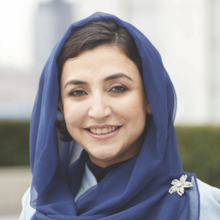Princeton SPIA Launches Afghanistan Policy Lab

Afghanistan is moving closer to a humanitarian crisis, marked by economic collapse. Half of the population needs aid, and the poverty rate is expected to reach 97% by mid-2022, according to reports from the United Nations.
Understanding the country, its policymaking process, and advocacy needs is critical. To contribute toward — and advocate for — Afghanistan’s rebuilding, the Princeton School of Public and International Affairs (SPIA) and the Liechtenstein Institute on Self-Determination are pleased to support the Afghanistan Policy Lab as founding co-sponsors. The lab aims to help build an inclusive, peaceful, and prosperous Afghanistan equally representing all citizens.

Eight academic fellows from Afghanistan, who worked previously in support of U.S. government efforts there, will collaborate with members of Princeton SPIA’s academic community on policy-relevant research. Hailing from different sectors of Afghan society, the fellows include researchers, women activists, government officials and journalists. They will produce work on four areas: humanitarian aid, civic space, women, and national healing and reconciliation.
“Our School is committed to being responsive to needs within the global community and providing humanitarian support. We are honored to welcome these fellows to Princeton, especially in the face of turmoil,” SPIA Dean Amaney Jamal said. “Their contributions will address the impact of the U.S. withdrawal from Afghanistan and will influence policy recommendations for the country.”
In addition to providing recommendations to the international community and the United States, the initiative will work to include the perspectives of Afghans on the ground by partnering with local organizations, think tanks and experts to include their ideas. The fellows will produce policy papers and present panel discussions.
The lab will be directed by Adela Raz, Afghanistan’s former ambassador to the United States and the United Nations.
“In selecting these four policy areas, we focused on one word: ‘forward,” Ambassador Raz said. “How do we protect the dynamic society, civilian spaces, and respect for human rights that we built over the past 20 years for Afghan men and women, while also addressing the existential challenge of the humanitarian catastrophe and the need for a reconciliation process that can lead to a sustainable peace? We cannot afford to take any steps back and these areas require our immediate attention and Afghan solutions to help our country get back on track to development.”

The fellows will be appointed full-time for 12- to 18-month terms. Besides engaging with external partners, the fellows may work with other Princeton academics and students interested in the evolving situation in Afghanistan.
Stay up to date and learn more at spia.princeton.edu/afghanistan-policy-lab.
Register for Zoom launch event on April 14, 4:30 p.m. ET, or view live on YouTube.
